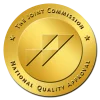Symptoms and Signs of Schizophrenia
This mental health illness affects how a person thinks, feels, and behaves. Schizophrenia is a condition where people can lose touch with reality and interpret that reality abnormally. Symptoms of schizophrenia make it challenging to participate in ordinary, everyday activities. Not only does it impair daily functioning, but it can be disabling and requires lifelong treatment. It’s essential to be aware of the symptoms and signs of schizophrenia.
Types of Symptoms
Schizophrenia symptoms can vary from person to person but usually involve various issues with cognition, behavior, and emotion. Furthermore, the signs of schizophrenia often fall into three primary categories: Psychotic (Positive), Negative, and Cognitive.
Psychotic (Positive) Symptoms of Schizophrenia
Psychotic symptoms of schizophrenia are also called positive symptoms. They are highly-exaggerated perceptions, ideas, or actions that show a person cannot discern between what is real from what isn’t. Positive refers to the presence of symptoms rather than the absence of them.
According to NIH, these psychotic symptoms change how people think, act, and experience the world around them. They can lose the shared sense of reality through severe distortion of how they perceive it. For some, the symptoms of schizophrenia may come and go, for others, they may become stable, or otherwise manageable.
- Delusions – a strong belief about things that are not true and seem irrational to others. This is the most common symptom of schizophrenia, where people believe things are not based in reality, such as people are watching them, certain gestures are directed toward them, or a major catastrophe is about to happen. Types of delusions include:
- Persecutory: Believing someone is after you, or you are being hunted, framed, tricked, stalked, harassed, etc.
- Referential: Believing public forms of communication are a special message just for them, like song lyrics or a gesture from a TV host.
- Somatic: Believing you have a terrible illness or strange health problem that might not even exist.
- Erotomaniac: Believing a person or celebrity is in love with them, or their partner is cheating.
- Religious: Believing you have a special relationship with a deity or a demon possesses you.
- Grandiose: Believing you are a major figure on the global stage, such as a politician or entertainer.
- Hallucinations – a person hears, smells, tastes, sees, or feels things that are not actually there. Although they can affect any sense, hearing voices is a common symptom for people with schizophrenia. Here are the types of hallucinations:
- Auditory: Hearing voices that could be angry, or demanding. It can be multiple voices or just one, often whispering or murmuring.
- Visual: Seeing lights, objects, patterns, or people, who often loved ones who passed away. You may have trouble with distance and depth perception as well.
- Olfactory and Gustatory: Smelling or tasting good and bad things that are inaccurate, such as thinking someone is trying to poison them.
- Tactile: Feeling things move in your body, such as bugs.
- Thought Disorder – Trouble organizing thoughts or speech and thinking illogically or in an unusual manner. Disorganized thinking leads to rambling speech, such as stopping in the middle of a thought, jumping from one topic to another, or making up words that don’t have a meaning.
- Movement Disorder – Abnormal body movements that a person may repeat. Extremely disorganized actions can range from childlike silliness to unpredictable agitation. The person may resist instructions, display bizarre posture, show a lack of response, or have excessive, useless movement.
Negative Symptoms of Schizophrenia
Negative symptoms sometimes mimic signs of depression or other mental illnesses. Nevertheless, you may notice the following negative symptoms of schizophrenia:
- Loss of interest in daily activities and trouble anticipating and feeling pleasure in everyday life, which is known as anhedonia.
- Trouble scheduling, planning, or even starting everyday activities.
- Having low energy and doing passive activities. According to NIH, some even stop talking or moving in rare cases called catatonia.
- Withdrawal from social life by interacting in socially awkward ways or avoiding social interaction altogether, which doctors refer to as apathy.
- Difficulty showing emotions such as speaking in a dull, monotone voice, avoiding eye contact, and having limited facial expressions, which doctors call an affective flattening.
- Reduced or complete lack of ability to function, such as neglecting basic hygiene.
Cognitive Symptoms of Schizophrenia
Problems with cognition, or thinking, in people with schizophrenia include issues with concentration, attention, and memory. Their level of cognitive function will predict their daily functioning because these symptoms determine how well their brain learns, stores, and uses information. You can evaluate cognitive functioning using specific tests.
These symptoms can make it hard to learn new things, remember appointments, follow a conversation, and more. They might be unable to keep track of different facts simultaneously, such as instructions and phone numbers. They can need help with using information immediately after learning it. Besides having difficulty paying attention and concentrating, cognitive symptoms can affect how people with schizophrenia organize thoughts and make decisions.
What to Do if You Notice Signs or Symptoms of Schizophrenia
For most men, schizophrenia signs start in the early to mid-20s, and for women, it can begin in their late 20s. Children are rarely diagnosed with schizophrenia, as well as those older than 45. It can be challenging to recognize schizophrenia in teenagers because some symptoms mimic other issues or result from substance use. Diagnosis usually comes between the ages of 16 and 30 years old or after the first episode of psychosis.
It is important to understand the signs of schizophrenia and seek help for treatment following this initial episode because it’s likely that gradual changes in mood, thinking, and social function will follow. Doctors call this the prodrome phase. As this phase progresses, the person afflicted with schizophrenia won’t be able to tell when some ideas or perceptions are real. They may not even realize they have this condition until diagnosis. If you think you or someone else has signs of schizophrenia, talk to a doctor.
Do You Need Medical Help?
If you’re looking for acute inpatient care, intensive outpatient programs, residential treatment, partial hospitalization, assertive community treatment, or mission recovery programs in New Mexico, Peak Behavioral Health is ready to help. Our trained medical staff offers 24/7 care with physician supervision, medication management, and group therapy as well as assessment, diagnosis, and rapid stabilization for adolescents, adults, seniors, military and families. Contact us now for immediate help.







